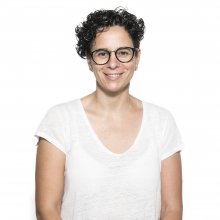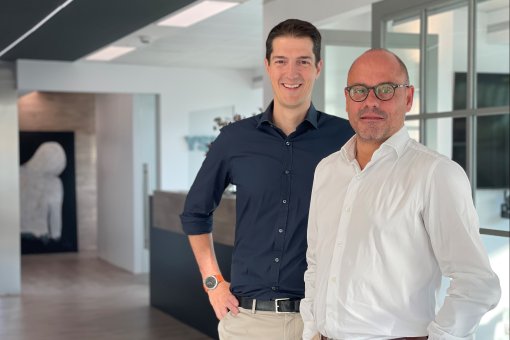Images
Participants

Contact

In the video "Looking for a needle in a haystack", ICREA researcher at IRB Barcelona describes her work at the front of the Biomedical Genomics laboratory.
The group’s interests range from deciphering the basic biology of cancer to the development of useful tools for the diagnosis and personalised treatment of patients.
López-Bigas stars in the ninth video of the series "Meet Our Scientists", which seeks to introduce society to the researchers that work at IRB Barcelona and explain the work that they do. This year the series is supported by the “Fundación Española para la Ciencia y la Tecnología” (FECYT).
Darwin’s theory reflected tumours
Tumours accumulate many mutations but they do not all have the same effect. "In fact, of the thousands of mutations that we can find, perhaps only two, three or four are critical to transform a normal cell into a tumoural cell". The lab looks for those mutations that confer an advantage to cell proliferation, division and evasion of regulatory mechanisms. "We look for what is referred to in evolution as positive selection," she explains. Their findings are published on a public access website (https://www.intogen.org).
The dark side of the genome
Personalised medicine
It is increasing more common to sequence the patients’ genomes to identify mutations. However, oncologists need tools to be able to interpret the meaning of the mutations and to distinguish those that are important from those that are not. "We want to develop methods to facilitate the medical interpretation of mutations and to help oncologists choose the most suitable treatment for each patient. This is how we contribute to furthering personalised medicine for cancer".
The "Meet Our Scientists" videos, which have subtitles in English, Catalan and Spanish, can be watched on IRB Barcelona’s YouTube channel and on the institute’s website.
About IRB Barcelona
The Institute for Research in Biomedicine (IRB Barcelona) pursues a society free of disease. To this end, it conducts multidisciplinary research of excellence to cure cancer and other diseases linked to ageing. It establishes technology transfer agreements with the pharmaceutical industry and major hospitals to bring research results closer to society, and organises a range of science outreach activities to engage the public in an open dialogue. IRB Barcelona is an international centre that hosts 400 researchers and more than 30 nationalities. Recognised as a Severo Ochoa Centre of Excellence since 2011, IRB Barcelona is a CERCA centre and member of the Barcelona Institute of Science and Technology (BIST).




